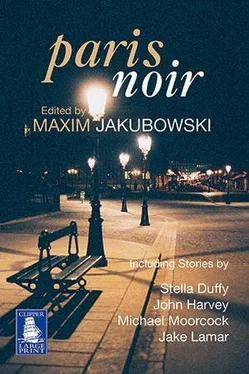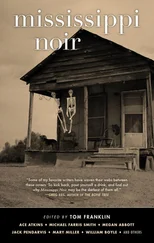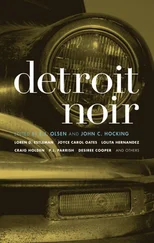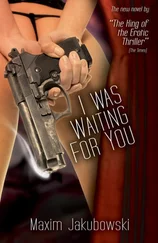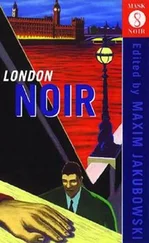Maxim Jakubowski - Paris Noir
Здесь есть возможность читать онлайн «Maxim Jakubowski - Paris Noir» весь текст электронной книги совершенно бесплатно (целиком полную версию без сокращений). В некоторых случаях можно слушать аудио, скачать через торрент в формате fb2 и присутствует краткое содержание. Жанр: Детектив, на английском языке. Описание произведения, (предисловие) а так же отзывы посетителей доступны на портале библиотеки ЛибКат.
- Название:Paris Noir
- Автор:
- Жанр:
- Год:неизвестен
- ISBN:нет данных
- Рейтинг книги:3 / 5. Голосов: 1
-
Избранное:Добавить в избранное
- Отзывы:
-
Ваша оценка:
- 60
- 1
- 2
- 3
- 4
- 5
Paris Noir: краткое содержание, описание и аннотация
Предлагаем к чтению аннотацию, описание, краткое содержание или предисловие (зависит от того, что написал сам автор книги «Paris Noir»). Если вы не нашли необходимую информацию о книге — напишите в комментариях, мы постараемся отыскать её.
Edited by Maxim Jakubowski, the stories range from quietly menacing to spectacularly violent, and include contributions from some of the most famous crime writers from both sides of the Atlantic, as well as the other side of the Channel.
Paris Noir — читать онлайн бесплатно полную книгу (весь текст) целиком
Ниже представлен текст книги, разбитый по страницам. Система сохранения места последней прочитанной страницы, позволяет с удобством читать онлайн бесплатно книгу «Paris Noir», без необходимости каждый раз заново искать на чём Вы остановились. Поставьте закладку, и сможете в любой момент перейти на страницу, на которой закончили чтение.
Интервал:
Закладка:
Until last week he worked for a factory that made faucets – faucets of silvered chrome – that went into every building put up by Joshua Lightning’s own construction company. Lightning & Lightning was a kind of corporate octopus, but Calvin had been the full-time accountant for its largest affiliate, Lightning Faucets & Chrome. How could he have guessed that the ingenious way he cooked Joshua’s books would be copied by Lightning & Lightning’s other accountants, and that federal prosecutors would consider him the brains behind the whole octopus?
If he hadn’t gone to Columbia with Josh, roomed with him for three years, he would have been disposed of, dumped into a truck, and become part of lower Manhattan’s landfill. But Josh had pleaded Cal’s case with the mob bankers, had convinced them that he could hide Cal, keep him out of harm’s way. Josh would have preferred that he disappear into Bolivia or Brazil, where gringo prosecutors would never find him, but Paris had always been Cal’s dreamland, ever since he read Baudelaire and Maupassant at Columbia.
He’d gone to work for Josh’s dad right out of college, had to attend accounting school at night, and slave for Lightning Faucets & Chrome – he’d been married and divorced, had one daughter at Amherst and a second daughter at Yale, and all his vacations up until now had been packaged retreats that Lightning & Lightning put together and paid for: the Bahamas, Cape Cod, the Hemingway country of Key West.
Cal had five million in a retirement account, held at Lightning & Lightning’s own private bank, but he was having a crisis long before federal prosecutors swooped down on Lightning’s books, which were almost like fairy tales with elaborate fictional plots. He couldn’t bear his accumulations of money. His daughters went to Joshua for their tuition, not to Cal. He’d always been absent, even while he was at Faucets & Chrome. He was a walking, talking filament of fire, a hot wire that could create or swallow up a whole column of numbers and categories – he was like a musical instrument that had learned to play itself. In fact, his only pleasure had come from his manoeuvrings with a sea of lines on a ledger book. He’d never been in love, and his connection to his daughters was so ambiguous and remote that it too was at the point of disappearing.
But there was a touch of eccentricity to Cal – his passion for Paris, a city he had only seen once in a mad weekend whirl when he accompanied Joshua to a convention of faucet makers at some palais in the middle of nowhere – he’d barely had time for a pilgrimage to Baudelaire’s grave, a hike in Montparnasse, a visit to the Dingo, where Hemingway had first met Scott Fitzgerald. Yet that weekend had sculpted Cal, defined him in some essential way – and his dream, or delirium, was to escape Lightning Faucets and live in that city of desire he knew so little about.
And now he hid in a luxurious apartment with a bird’s-eye view of Maupassant. He hadn’t realised that his flat on the rue Boulard would be just another tomb. Joshua had commanded him never to venture into the street – not even after midnight. All his meals were prepared by the concierge, a Portuguese woman who also dusted the apartment and did his laundry. He had 180 channels he could watch on a plasma screen that covered an entire wall. A call girl visited him on Tuesdays, a ravishing métisse with green eyes and mocha skin. Her name was Mélodie. She was a figurante at some theatre company in the provinces, could recite Molièere and Shakespeare, and talk to Cal about books until he was blue in the face. The sexual splendour she offered was beyond the realm of what he might have imagined, and yet something gnawed at him. Mélodie could deliver all the mechanics of love, even camaraderie and companionship, but it felt like the dress rehearsal for a play that Cal would never be in.
He had a suspicion that Mélodie might be spying on him, and he wondered if she was Joshua’s own mulatto mistress. She knew things about Cal she ought not to have known, that he was a fanatic about fantasy baseball, had used his command of statistics to invent his own baseball league, where Babe Ruth could bat against Sandy Koufax, and Joe DiMaggio could duel with Willie Mays in centrefield – Cal’s artistic trick was to merge time and space in his fantasy league, as if the whole history of baseball could collapse into one titanic season. He’d ‘cooked’ baseball with the same imaginative leap in which he’d cooked Lightning’s books.
And so he would lie with Mélodie on his coverlet, the cemetery outside his window like some burning woods, and even as she devoured him with her green eyes, he couldn’t wait until she left. But when he tried to stop seeing her, Josh suddenly appeared with a split of champagne.
‘I don’t believe in Mélodie Montesquieu,’ Cal sang while he sipped. ‘She belongs in fantasy baseball. She could play shortstop without her clothes. She’d win every game.’
‘Don’t knock the kid,’ Joshua said. ‘She visits you as a personal favour to me. Our people worry, worry that you’ll crack. That you’ll wander into some hole that belongs to the feds. Uncle Sam could haul your ass right back to the States.’
‘And Mélodie writes reports and convinces your money-men that I’m more valuable to you alive than dead.’
‘That’s the equation – in a nutshell.’
2.
Josh had left him some mad money – a thousand euros, in case there was a sudden call from Lightning’s lawyers to vacate the rue Boulard and hide somewhere else. He sat on the euros like a squirrel, slept with Mélodie, promised himself he would see a tiny piece of Paris before he died.
He had to deflect the concierge, who was Josh’s own gatekeeper. He went down the back stairs, entered a garden with its own glass gazebo, climbed a wall that led him onto the rue Daguerre, a market street that emboldened Cal, made him feel that he’d discovered a little paradise of cafés and stalls and shoppers clutching little baskets composed entirely of string.
How much of a sin could it be to stroll among the shoppers, sit at a café like some hidden king of fantasy baseball? But he couldn’t take the chance. Suppose the concierge saw him on one of her own shopping sprees? So he climbed back over the wall to his tomb above the cemetery. And after a few days he went on a second outing, to the cemetery itself, where he found Maupassant and Maria Monte: among graves that were scattered like broken teeth.
Montez was a sultry Technicolor queen of the 1940s who starred in a series of flicks about the harem girls and thieves of a Baghdad that rose up ludicrously on Hollywood’s back lots. What he loved about Montez was her long silences even when she was asked to play Scheherazade. She could barely mouth a single line of dialogue – she belonged in fantasy baseball rather than Baghdad of the back lots. Perhaps he could remake Montez into a manager of some fantasy team. He had discovered her years ago in a late-night festival of B-movies, her face all aflame, her lipstick as red as lacquered blood, and Montez had remained with him, like a ghost at the very edge of sleep.
And then he saw her – not in the cemetery, but in a salon on the rue Daguerre, after Cal had decided to have his hair cut. The hairdresser herself couldn’t intrigue him; it was the shampoo girl, Marie, who wore lipstick and nail polish right out of the Arabian Nights . She looked at Cal with her own Arabian eyes, and he muttered ‘Maria Montez’.
He had a kindergarten command of French, but it didn’t seem to matter with Marie. She sat him down in her private throne where she shampooed customers’ hair, put a huge plastic napkin over his shirt, clutched him around the ears, and drew his head back into the hollow of a sink.
Читать дальшеИнтервал:
Закладка:
Похожие книги на «Paris Noir»
Представляем Вашему вниманию похожие книги на «Paris Noir» списком для выбора. Мы отобрали схожую по названию и смыслу литературу в надежде предоставить читателям больше вариантов отыскать новые, интересные, ещё непрочитанные произведения.
Обсуждение, отзывы о книге «Paris Noir» и просто собственные мнения читателей. Оставьте ваши комментарии, напишите, что Вы думаете о произведении, его смысле или главных героях. Укажите что конкретно понравилось, а что нет, и почему Вы так считаете.
